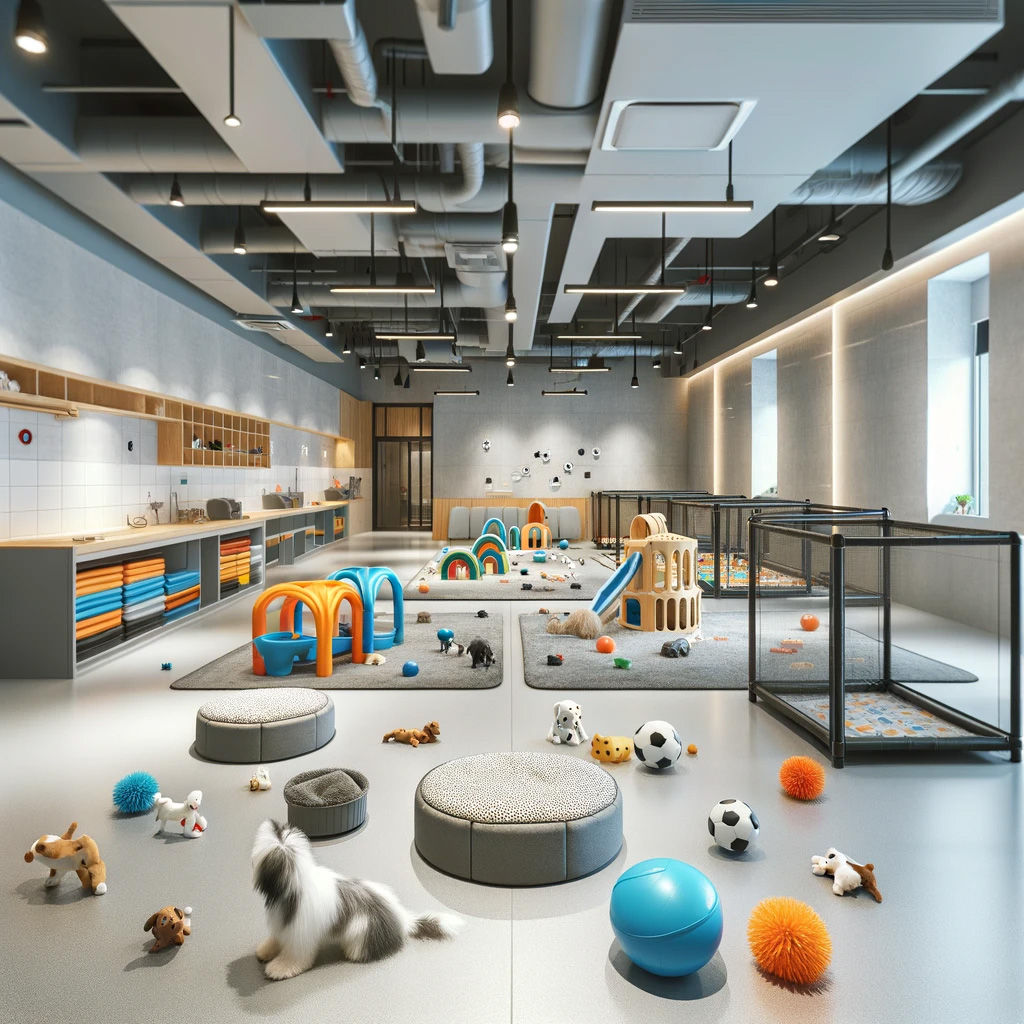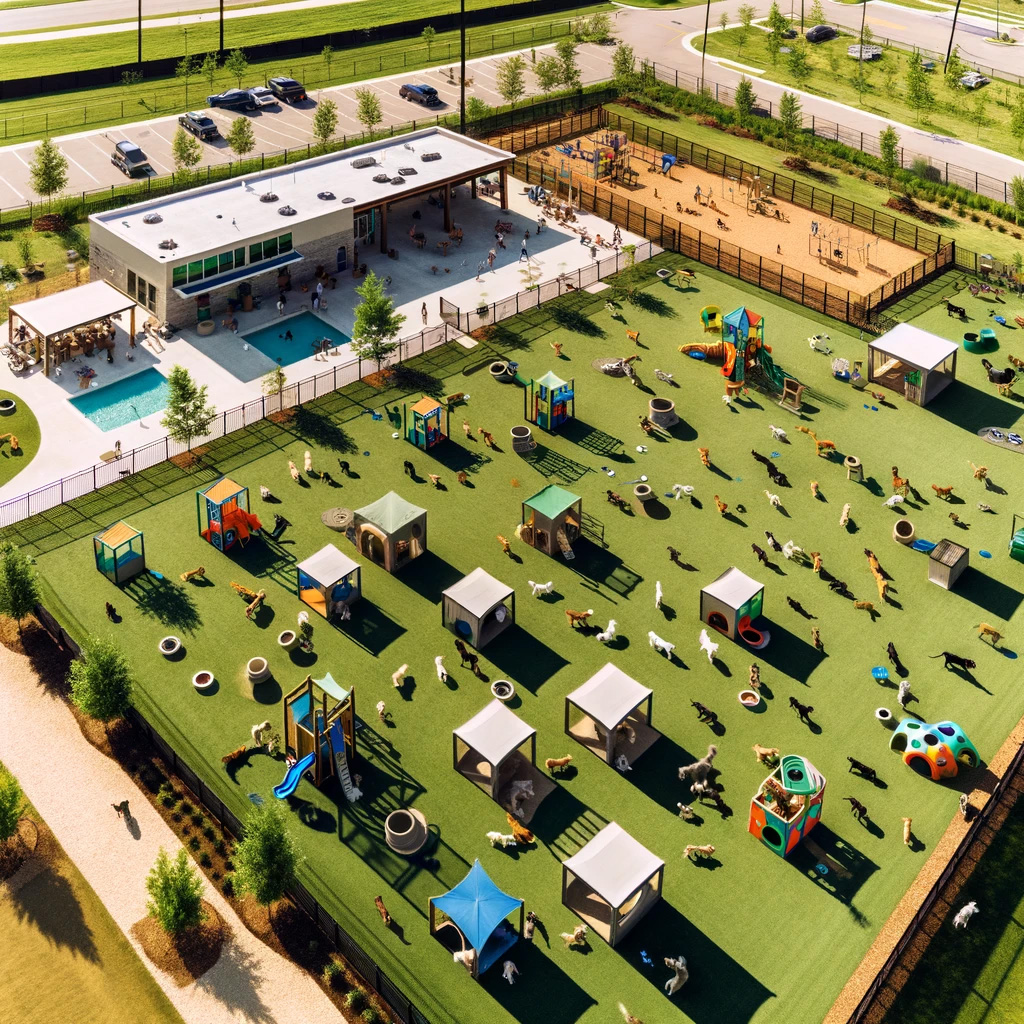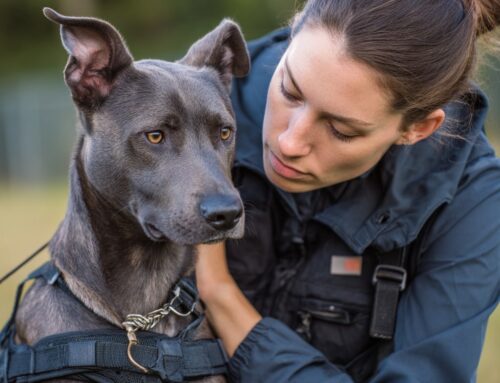Doggy daycare has become increasingly popular among pet owners seeking a solution to keep their dogs active, engaged, and well-socialized while they’re away at work or running errands. However, not every dog is cut out for the daycare environment. The decision to enroll your canine companion in a dog daycare facility requires careful consideration of various factors, including your dog’s temperament, energy level, health, and socialization skills.
So is doggy day care good for your dog? We’ll get into the key considerations and factors that will help you as dog owners determine whether your dog is the right fit for dog daycares. From assessing your dog’s personality to understanding the benefits and potential challenges of doggie daycare, we’ll provide you with the insights you need to make an informed decision for your beloved furry friend.
Understanding Your Dog’s Personality and Temperament
Before getting into the world of doggy daycare, it’s essential to have a deep understanding of your dog’s personality and temperament. Dogs, like humans, have unique traits that influence how they interact with their surroundings, other dogs, and people. Assessing your dog’s temperament is a crucial first step in determining whether they’ll thrive in a dog daycare setting.
Socialization Skills:
One of the primary indicators of a dog’s suitability for a doggy daycare facility is their socialization skills. Dogs that are naturally social and enjoy the company of other dogs or like going to a dog park with many dogs may flourish in dog daycare facilities where interaction and play are central activities. On the other hand, shy or anxious dogs might find the constant activity and the presence of other dogs overwhelming, so you may need to either slowly enter them into dog day care facilities or there may need to be some extra dog training that may need to happen before.

Playfulness and Energy Level:
Consider your dog’s playfulness and energy level. High-energy breeds often benefit from the structured activities and play opportunities provided by daycare. Just like bringing dogs to dog parks, this can help burn off excess energy, preventing destructive behaviors at home. However, a low-energy lazy dog or older dogs might prefer a calmer environment, and the constant activity of a daycare setting might not be the best fit for them.
Basic Obedience and Training:
Basic obedience is another crucial aspect. Dogs that respond well to commands and have a good grasp of basic obedience are better equipped to navigate a group setting. This ensures a safer and more controlled environment for all dogs in the daycare. And if they don’t have that type of skill just yet, you can start with basic behavior modification training or dog boarding with a trainer before setting them into dog daycares.
Age Considerations:
Puppies, with their boundless energy and curiosity, may find daycare particularly beneficial for socialization and learning appropriate behaviors. However, it’s essential to check if the daycare facility has age restrictions and if they provide age-appropriate activities and supervision. Some places do have specific puppy training classes before they can go into more advanced classes or doggy daycares, so make sure to ask if they have something for a puppy. On the other end of age, some older dogs may not find doggy day care being good for them as sometimes they are a tired dog and would thrive better in more calm settings versus the high-energy setting of a doggy care.
Assessing Your Dog’s Health and Medical Considerations
A dog’s overall health plays a crucial role in determining their suitability for doggy daycare. Before enrolling your dog, consider the following health-related factors:
Vaccination Status:
Most reputable doggy daycare facilities require up-to-date vaccinations to ensure the health and safety of all dogs in their care. Check with your veterinarian to ensure your dog’s vaccinations are current and meet the daycare’s requirements.

Medical Conditions:
Certain health conditions may impact a dog’s ability to participate in daycare activities. Dogs with chronic health issues, mobility issues, or those recovering from surgery may require a more controlled environment and specialized care. Consult with your veterinarian to determine if your dog is physically able to handle the dog daycare setting.
Medication Requirements:
If your dog requires medication, discuss this with the daycare staff. Some facilities may be able to administer medication, while others may have restrictions. Clear communication about your dog’s medical needs is crucial to their well-being in a dog daycare environment.
Energy Levels and the Benefits of Doggy Daycare
Understanding your dog’s energy level is pivotal in gauging the potential benefits of doggy daycare. Let’s explore how the daycare environment can cater to different energy levels and contribute positively to your dog’s overall well-being.
High-Energy Dogs:
For breeds with high energy levels, like as Border Collies, Australian Shepherds, or Boxers, doggy daycare can be a haven for burning off excess energy. The structured activities, playtime, and social interactions with dog friends provide an outlet for their physical and mental energy, reducing the likelihood of boredom-related behaviors they can exhibit at home.

Preventing Destructive Behaviors:
Highly energetic dogs left alone at home for extended periods may engage in destructive behaviors out of boredom or frustration. Doggy daycare can help mitigate these issues by keeping your dog mentally stimulated and physically active throughout the day.
Low-Energy Dogs:
While doggy daycare may be an excellent option for high-energy dogs, it’s essential to recognize that not all dogs thrive in such an environment. Most dogs that are older, or those with health issues, or breeds with lower energy levels might prefer a quieter, more relaxed setting than a dog daycare.
Training and Behavioral Considerations
A well-behaved dog is more likely to have a positive experience in a dog daycare setting. Assessing your dog’s training and behavioral characteristics is crucial to ensure a harmonious and safe environment for all participants.
Basic Obedience:
Dogs with a foundation in basic obedience tend to fare well in daycare. Commands like sit, stay, and recall are valuable in maintaining order during group activities. If your dog is still working on basic commands, consider reinforcing their training or seeking professional help in basic obedience training before introducing them to a daycare setting.
Behavioral Challenges:
Dogs with behavioral challenges, such as aggression or excessive fear, may require special attention and training before being introduced to a daycare environment. Consulting with a professional aggression dog trainer or behaviorist can help address these issues and make the transition to daycare smoother.
Socialization Opportunities:
Doggy daycare offers an excellent opportunity for dogs to enhance their socialization skills. However, if your dog has had negative experiences with other dogs or has exhibited aggressive behaviors, gradual socialization under controlled conditions may be necessary before full participation in daycare activities.

Home Environment and Preferences
Consider your dog’s familiarity with your home environment and their preferences when evaluating the suitability of doggy daycare.
Home Setup:
Dogs that are accustomed to a quiet home environment may initially find the hustle and bustle of a daycare facility overwhelming. Introducing them gradually to new settings like dog parks and gradually increasing exposure can help them acclimate to dog daycares.
Comfort with Alone Time:
If your dog is used to spending extended periods alone without exhibiting signs of separation anxiety, they may be more comfortable with the idea of daycare. Dogs that struggle with being alone might benefit from daycare as a social outlet, but maybe not a regular thing until they become comfortable with being away.
Transportation Comfort:
You’ll also want to evaluate your dog’s comfort with transportation. Some dogs enjoy car rides, while others may find them stressful. If your dog is anxious during travel, consider whether this may impact their overall experience with dog daycare as it might have them associate anxiety with going to a doggy daycare when they’re uncomfortable in a car.
Daycare Policies:
Carefully review the policies of the dog daycare facility you are considering. This includes their approach to group dynamics, discipline, and any requirements or restrictions they may have. Understanding their rules and regulations ensures that your dog’s needs align with the daycare’s structure.

Health and Hygiene Standards
Maintaining a clean and healthy environment is crucial for preventing the spread of illnesses and ensuring the well-being of all dogs in the daycare facility.
Vaccination Requirements:
Reputable doggy daycares typically have strict vaccination requirements for all attending dogs. This helps create a safer environment and reduces the risk of contagious diseases. Ensure your dog’s vaccinations are up-to-date according to the daycare’s specifications.
Cleanliness and Sanitation:
Observe the cleanliness of the facility, including play areas, sleeping quarters, and communal spaces. A well-maintained environment with proper sanitation measures is essential for preventing the spread of germs and ensuring a comfortable stay for your dog.

Finding the Perfect Doggy Daycare
Now that you’ve assessed whether your dog is a suitable candidate for doggy daycare, the next crucial step is finding the right facility. Choosing a reputable and trustworthy daycare ensures your dog’s safety, happiness, and overall positive experience.
Research and Recommendations:
Begin your search by researching local doggy daycares. Seek recommendations from friends, family, neighbors, or your veterinarian. Personal experiences from people you trust can provide valuable insights. Request client references from the daycare. Speaking with other pet owners who have used the facility can offer valuable insights into the overall experience and satisfaction levels. And utilize online platforms to read reviews from other pet owners. While individual experiences may vary, consistent positive reviews can be a good indicator of the daycare’s reliability.
Visit the Facility:
Schedule visits to potential daycares to observe the environment firsthand. Pay attention to cleanliness, safety features, and the overall atmosphere. A well-maintained facility with engaged and attentive staff is a positive sign. Inquire about opportunities to observe daycare activities. Some facilities may offer live-streaming options or allow you to watch play sessions, providing transparency and peace of mind. Schedule a visit during operational hours to observe how staff interacts with dogs and handles various situations. This firsthand observation can provide valuable insights into the daily operations of the daycare.
Staff Qualifications & Daycare Philosophy
Inquire about the qualifications and training of the daycare staff. Experienced professionals who understand dog behavior and can manage group dynamics contribute to a safe and enjoyable environment. Ask about safety measures in place, including secure fencing, emergency protocols, and staff-to-dog ratios. A commitment to safety is paramount for ensuring a secure environment for all dogs. Also, understand the daycare’s philosophy and approach to dog care. A facility that aligns with your values and prioritizes positive reinforcement, enrichment activities, and individualized attention is likely to be a good fit. Choose a daycare with clear communication channels. Regular updates, feedback, and a willingness to address any concerns promptly are indicative of a responsible and caring facility.
By taking a thoughtful and thorough approach to finding a doggy daycare, you increase the likelihood of choosing a facility that aligns with your dog’s needs and provides you with confidence in their care. Remember that the right daycare is a partnership in ensuring the well-being and happiness of your beloved furry friend.
Is Doggy Day Care Good: Making the Right Decision for Your Dog
Choosing whether your dog is right for doggy daycare involves a thoughtful evaluation of various factors, including their personality, health, training, and the daycare facility’s environment and policies. By taking the time to understand your dog’s individual needs and preferences, you can make an informed decision that enhances their quality of life.
Remember that not every dog is suited for a daycare setting, and that’s perfectly okay. Alternatives such as hiring a pet sitter, utilizing a dog walker, or arranging playdates with other dogs can be viable options for ensuring your dog’s happiness and socialization.

In the end, the key is to prioritize your dog’s comfort and well-being. Whether they thrive in the lively atmosphere of a daycare or prefer the familiarity of home, your decision should reflect what best suits your dog’s unique personality and lifestyle. Choosing the right environment for your dog is an investment in their happiness, health, and overall life quality. Whatever choice you make, your thoughtful consideration will contribute to a positive experience for your furry friend.
If you have any specific questions or concerns about your dog and doggy daycare, don’t hesitate to consult with your veterinarian or seek advice from professional dog trainers. They can provide personalized guidance based on your dog’s individual needs and circumstances. You can also try out Doggy Daycare at Performance K9 Training! Our fully trained team is dedicated to supervising and monitoring your fur baby, ensuring a delightful experience for all. Take a step towards enhancing your dog’s life—explore the possibilities today and book a FREE doggy daycare evaluation to see if our program aligns perfectly with you and your dog’s needs!








